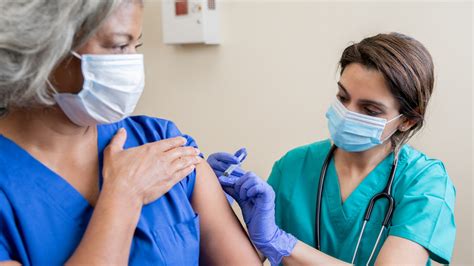5 RFK Vaccine Facts

The discussion around vaccines has been a contentious one, with various factors contributing to public perception and understanding. One of the critical aspects of this conversation is the wealth of information available, which can sometimes be overwhelming and difficult to navigate. In the context of vaccines, Robert F. Kennedy Jr. (RFK) has been a prominent figure, advocating for vaccine safety and raising concerns about the potential risks associated with vaccination. Here, we delve into five key facts related to RFK's stance on vaccines, exploring the complexities and nuances of the debate.
Key Points
- RFK's advocacy for vaccine safety and his concerns about vaccine ingredients and their potential impact on public health.
- The role of the Centers for Disease Control and Prevention (CDC) and other health organizations in regulating and recommending vaccines.
- The importance of vaccine efficacy and the impact of vaccination on herd immunity.
- The debate surrounding vaccine mandates and individual rights versus public health considerations.
- The ongoing research and development aimed at improving vaccine safety and efficacy.
RFK’s Concerns About Vaccine Safety

At the heart of RFK’s advocacy is the concern over vaccine safety, particularly focusing on the ingredients used in vaccines, such as mercury and aluminum, and their potential neurological effects. RFK has argued that these ingredients could be harmful, especially to children, and has called for more rigorous testing and transparency from vaccine manufacturers. This concern is part of a broader discussion about the balance between vaccine benefits and potential risks, with RFK and others pushing for a more cautious approach to vaccine development and administration.
Vaccine Ingredients and Neurological Effects
The debate over vaccine ingredients, such as thimerosal (which contains mercury) and aluminum salts, has been a focal point of controversy. RFK has cited studies suggesting a link between these ingredients and neurological disorders, including autism. However, it’s essential to note that numerous scientific studies and health organizations, including the CDC and the World Health Organization (WHO), have found no causal relationship between vaccines and autism. The scientific consensus supports the safety of vaccines when it comes to these ingredients, but the discussion highlights the importance of ongoing research into vaccine safety and efficacy.
| Vaccine Ingredient | Purpose | Concerns |
|---|---|---|
| Thimerosal (Mercury) | Preservative to prevent contamination | Potential neurological effects |
| Aluminum Salts | Adjuvants to enhance immune response | Potential for aluminum toxicity |

The Role of Health Organizations in Vaccine Regulation

Health organizations like the CDC, WHO, and the Food and Drug Administration (FDA) play a crucial role in regulating vaccines, ensuring their safety and efficacy before they are approved for public use. These organizations rely on extensive clinical trials and ongoing surveillance to monitor vaccine safety and effectiveness. RFK and other advocates have questioned the independence of these organizations, suggesting potential conflicts of interest and calling for greater transparency in the approval process. However, these organizations are designed to protect public health, and their recommendations are based on the best available scientific evidence.
Vaccine Efficacy and Herd Immunity
Vaccines are highly effective in preventing infectious diseases and have been instrumental in controlling outbreaks and achieving herd immunity, which protects vulnerable populations who cannot be vaccinated. The efficacy of vaccines is a critical factor in their success, with most vaccines offering significant protection against specific diseases. RFK’s concerns, while focused on safety, also touch on the idea of individual freedom versus collective protection, highlighting the complex ethical and public health considerations involved in vaccination policies.
What is the primary concern regarding vaccine safety according to RFK?
+The primary concern according to RFK is the potential harm caused by certain vaccine ingredients, such as mercury and aluminum, and their possible link to neurological disorders.
How do health organizations ensure vaccine safety?
+Health organizations like the CDC and WHO ensure vaccine safety through rigorous clinical trials, ongoing surveillance, and transparent approval processes, relying on the best available scientific evidence.
What is the role of vaccine efficacy in public health?
+Vaccine efficacy is crucial for preventing infectious diseases and achieving herd immunity, which protects those who cannot be vaccinated, thereby safeguarding public health.
In conclusion, the debate surrounding vaccines, as influenced by figures like RFK, underscores the complexity of balancing individual concerns with collective public health needs. While the scientific consensus overwhelmingly supports the safety and efficacy of vaccines, ongoing research and dialogue are essential for addressing concerns and improving vaccine technology. By engaging with the multifaceted aspects of vaccine development, regulation, and administration, we can work towards a more informed and nuanced discussion that prioritizes both individual rights and public health protection.



